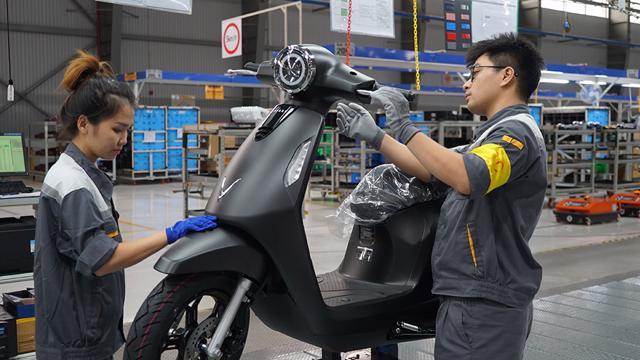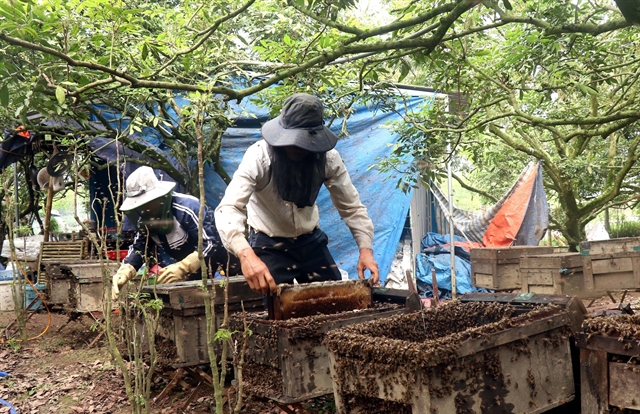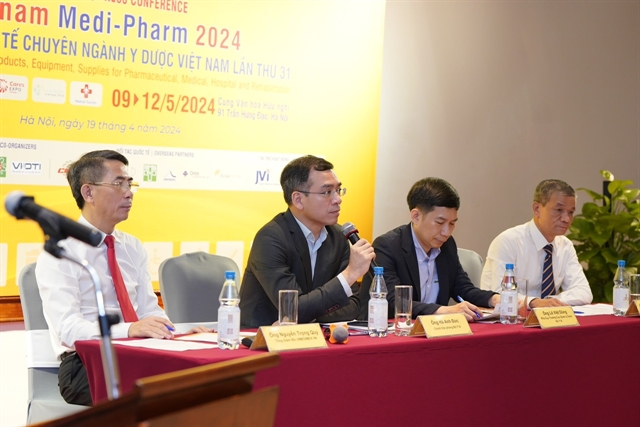 Society
Society

Việt Nam Government always reserves top priorities in protection and care of children with the disabilities, and create the best conditions in education for them to integrate well in the society.
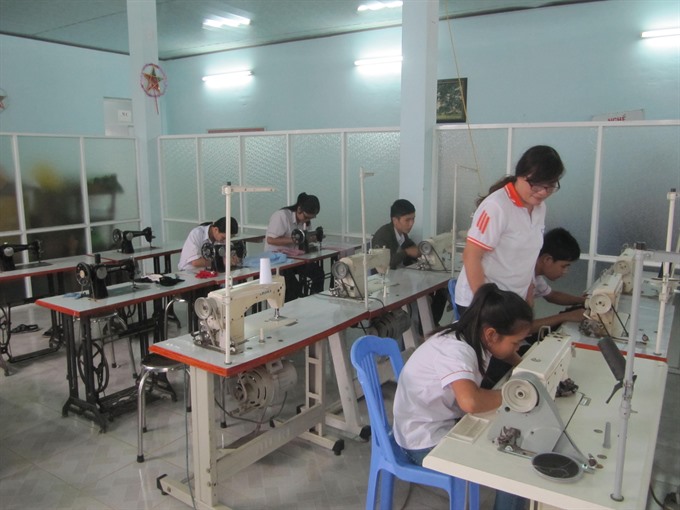 |
| Children with disabilities at a vocational training centre in Đà Nẵng. — VNS Photo Công Thành |
ĐÀ NẴNG — The Government always accords top priority to the protection and care of children with disabilities, and looks to create the best conditions in education for them to integrate well into the society, a senior official said Wednesday.
More than 60 per cent of children with disabilities attended school in the 2016-2017 academic year, and the country has developed 14 rehabilitation centres and 97 gifted schools nationwide to cater to children with disabilities, said Nguyễn Thị Nghĩa, Deputy Minister of Education and Training.
She was speaking at the opening ceremony of the ASEAN Intergovernmental Commission on Human Rights (AICHR) and the Regional Workshop on Enhanced Access to Education for Children with disabilities held in Đà Nẵng.
The two-day workshop is a collaboration between the AICHR, UNICEF, the Việt Nam ASEAN National Secretariat under the Ministry of Foreign Affairs and the Ministry of Education and Training.
It is being attended by 70 representatives of relevant ASEAN sectoral bodies, government officials from ASEAN member states, representatives from international organisations, non-governmental organisations, associations of people with disabilities, academics, parents and children with disabilities.
The workshop is the first ASEAN cross-sectoral initiative focusing on the right to education for children with disabilities, discussing the challenges and the roles of different stakeholders as well as experiences within and outside the bloc.
“Việt Nam has also approved a United Nations Convention on the Rights of Persons with Disabilities in 2014, and issued laws on education, children and persons with disabilities. The Government has also come up with many policies and action plans on ensuring the rights of children and persons with disabilities,” Nghia said.
Việt Nam has about 6.7 million people with disabilities, of which 1.3 million are children.
Ambassador Nguyễn Thị Nhã, the representative of Việt Nam at the AICHR, emphasised the importance of providing learning opportunities to one of the most vulnerable groups of children.
She said the workshop was the fourth meeting of the task force on mainstreaming the rights of persons with disabilities (PWD) in the ASEAN Community. The task force is working on the draft of a regional action plan to mainstream the rights of PWDs in ASEAN hopefully to be launched in 2018, she said.
Yoshimi Nishino, Deputy Representative of UNICEF Việt Nam, highlighted the significance of inclusive education for children with disabilities and stressed UNICEF’s commitment to work with the Government to ensure that “no one is left behind”.
“The ASEAN Vision 2025 shows that members are committed to creating an inclusive community with a high quality of life and access to opportunities for all, including persons with disabilities.
“I am sure the common commitment among ASEAN governments towards persons with disabilities will facilitate and improve both policy development and enforcement at the regional level. Effective regional co-operation will in turn lead to concrete and measurable success in the promotion and protection of the rights of persons with disabilities, including children,” she said. — VNS
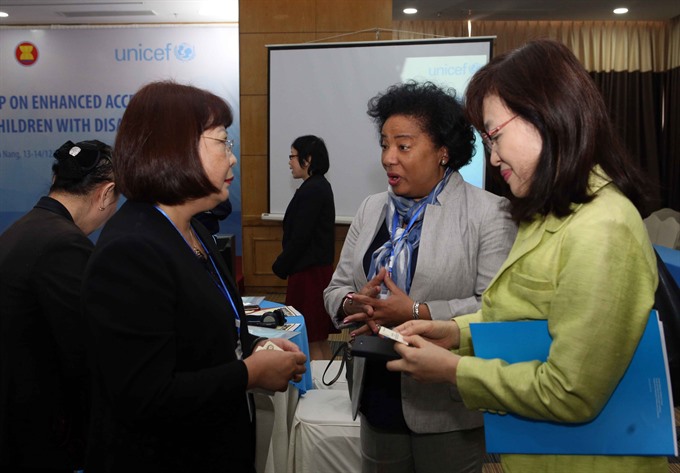 |
| Participants converse at the ASEAN Intergovernmental Commission on Human Rights (AICHR), Regional Workshop on Enhanced Access to Education for Children with disabilities held in Đà Nẵng on Wednesday. — VNS Photo Lâm Lê |

